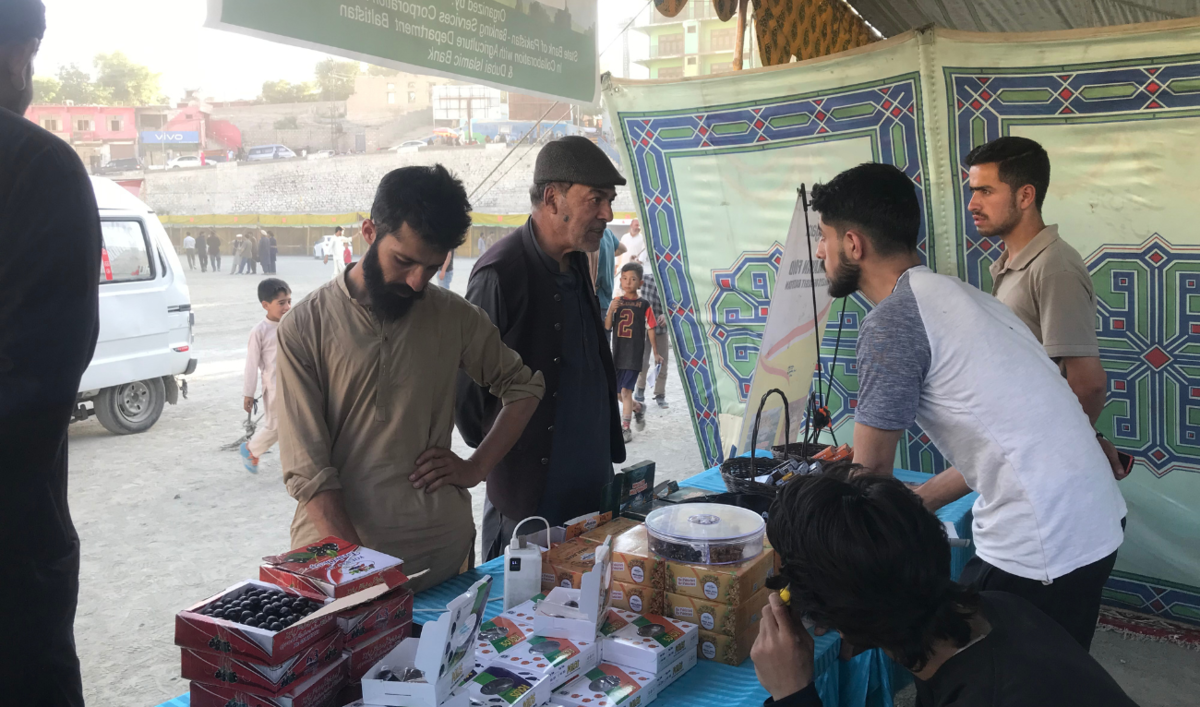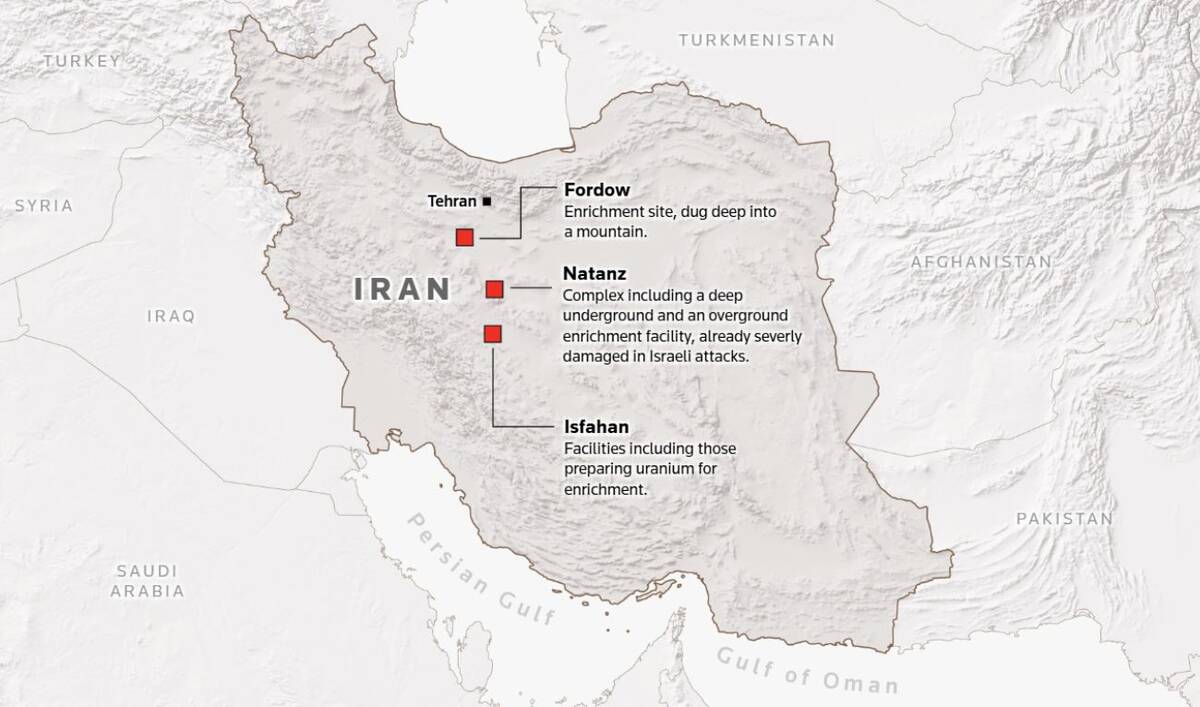QUETTA: With a pen tucked behind his ear, a shoemaker on Quetta’s busy Prince Road carefully weaved thread through a piece of tough leather, occasionally pounding it with a small hammer as he gave the finishing touches to one of the most sought-after Eid footwear items in southwestern Pakistan: the traditional Baloch sandal.
It’s a busy time of the year at the Prince Road market in Balochistan’s provincial capital, where buyers from all over the province throng each year ahead of the Muslim festival of Eid to buy sandals, or ‘chawat.’
The typical Baloch sandal features colorful embroidery and has soles expertly crafted from used tires, while the rest of the shoe is fashioned from leather hides. And even apart from Eid, the rugged, mountainous terrain of the southwestern province makes the durable product a popular choice among locals.
“This [sandal] is our culture and we wear it with a lot of passion because this has been the practice of our grandfathers and great grandfathers,” Munawar Khan Lehri, 32, told Arab News as he looked through hundreds of sandals hung up at a shop, saying he had traveled from Dasht, a village 40 kilometers away from Quetta, to buy the shoes for himself and his father.
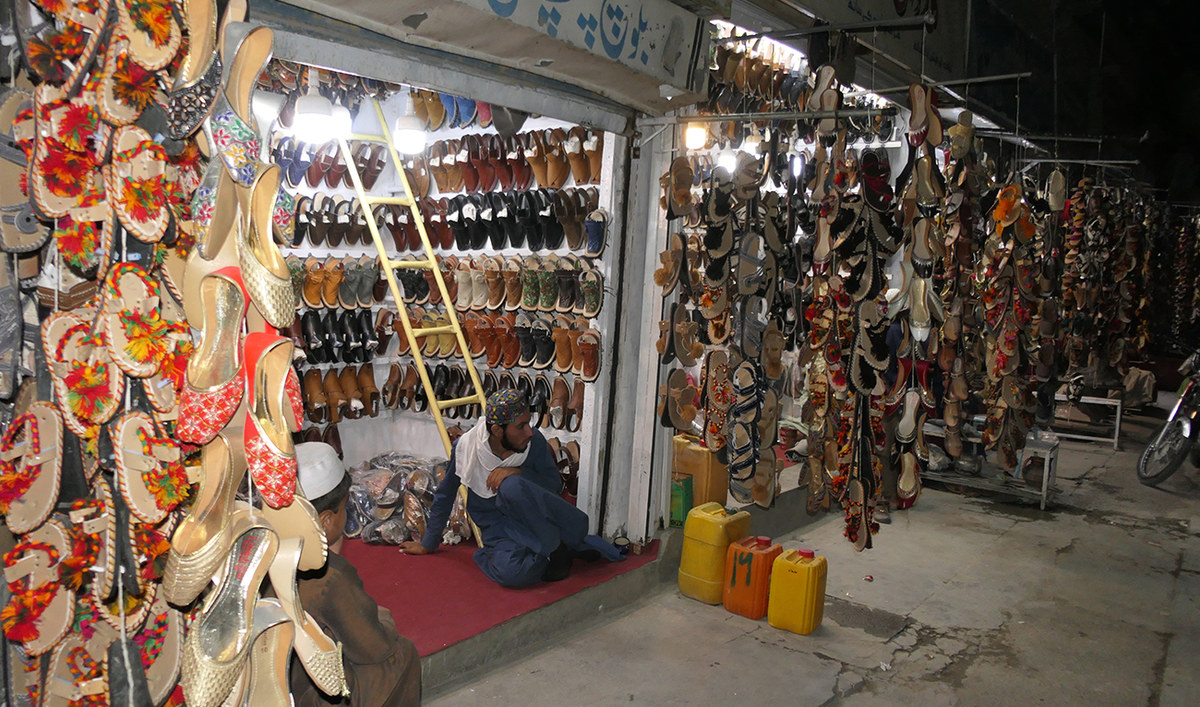
A general view of the Prince Road market ahead of the Muslim festival of Eid in Quetta on April 16, 2023. (AN Photo)
He said the sandals symbolized the “personality of the Baloch tribesmen” and were also “tough and durable.”
“We go to our villages where there are lots of rocks, hence they are popular there,” he added.
Over the past two decades, shoemakers have introduced various modifications to the sandals, including in colors and designs. Some of the traditional designs, the Marri, Bugti and Mengal cuts, are named after prominent tribes in the province. But new, more modern designs like the Norozi and Sabir are also gaining popularity among locals, who said the styles complimented their traditional Eid attire.
“For Eid, we have a special cultural attire with baggy trousers, turban and waistcoat,” Lehri explained, saying the sandals went well with the getup.
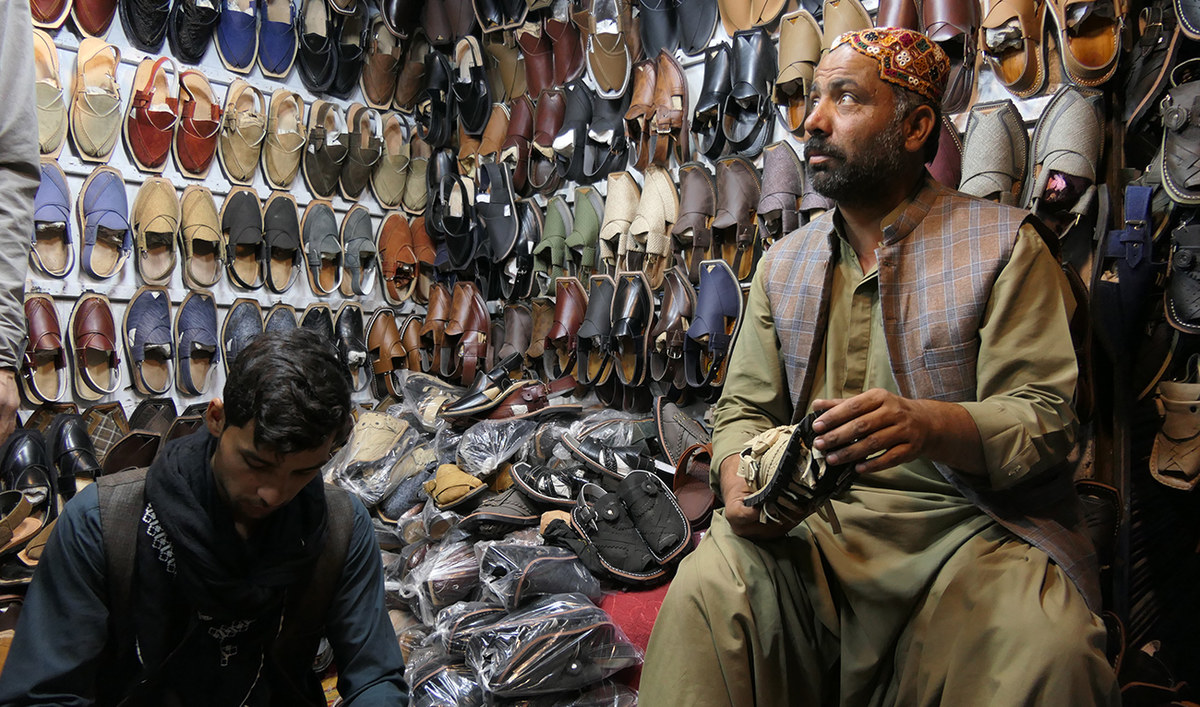
A customer, Munawar Khan Lehri, looks for traditional Baloch sandals ahead of the Muslim festival of Eid in Quetta on April 16, 2023. (AN Photo)
Shopkeeper Muhammad Hashim, 52, who has been making Baloch sandals for the past 35 years and opened his own shop on Prince Road in 2000, said he had made 1,300 sandals this year.
“Those that feature less embroidery, they cost less,” Hashim told Arab News. Their prices range from Rs1,200 ($4.28) to Rs8,000 ($28). We add hand embroidery to the ones that cost Rs8,000.”
Sadaruddin, 55, who makes the popular Norozi variety of the sandals, said work increased during Ramadan as customers placed more orders.
“During regular days, there is almost no business but, in this month, people buy one or two sandals due to their interest in Eid,” the shoemaker said. “One person bought 8-10 sandals, so, it’s due to their interest. On Eid, their interest is high.”
He said people from Pakistan’s Punjab and Sindh provinces had also placed orders for the famous sandals this Eid.
However, as Pakistan reels from multi-decade high inflation, buyers of the sandals also raised concerns, saying their prices had gone up by up to 25 percent.
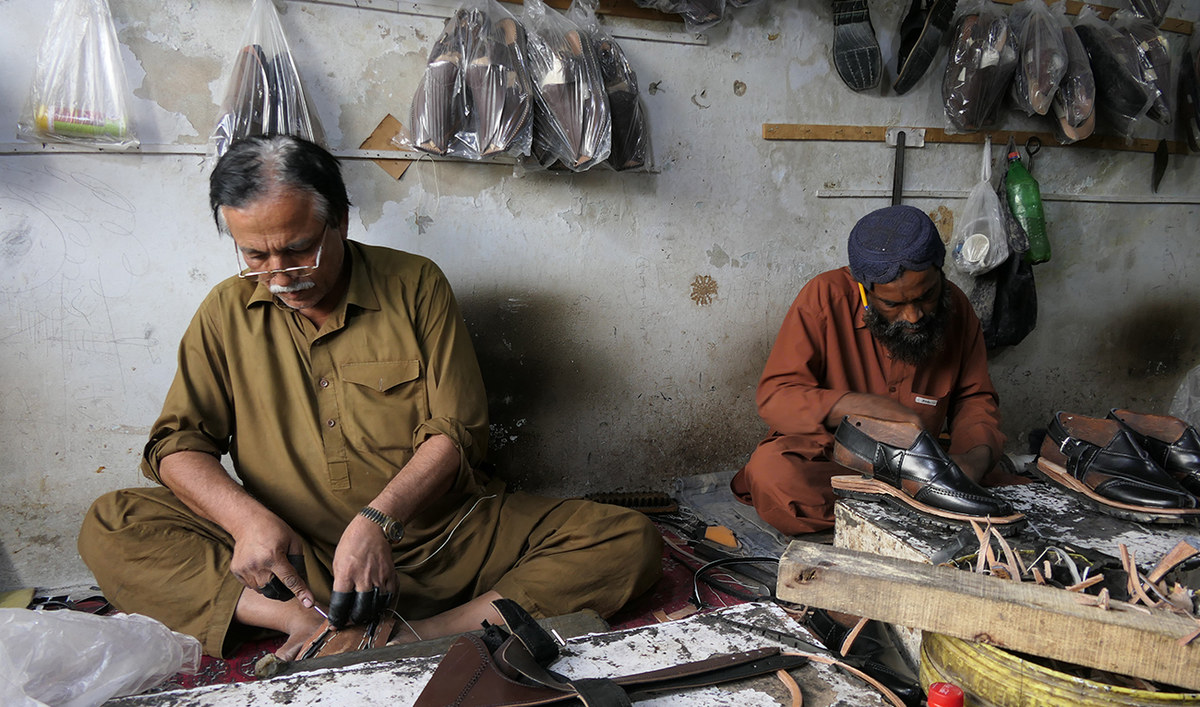
Sadar ud Din (left) prepares the sole of a traditional Baloch sandal ahead of the Muslim festival of Eid in Quetta on April 16, 2023. (AN Photo)
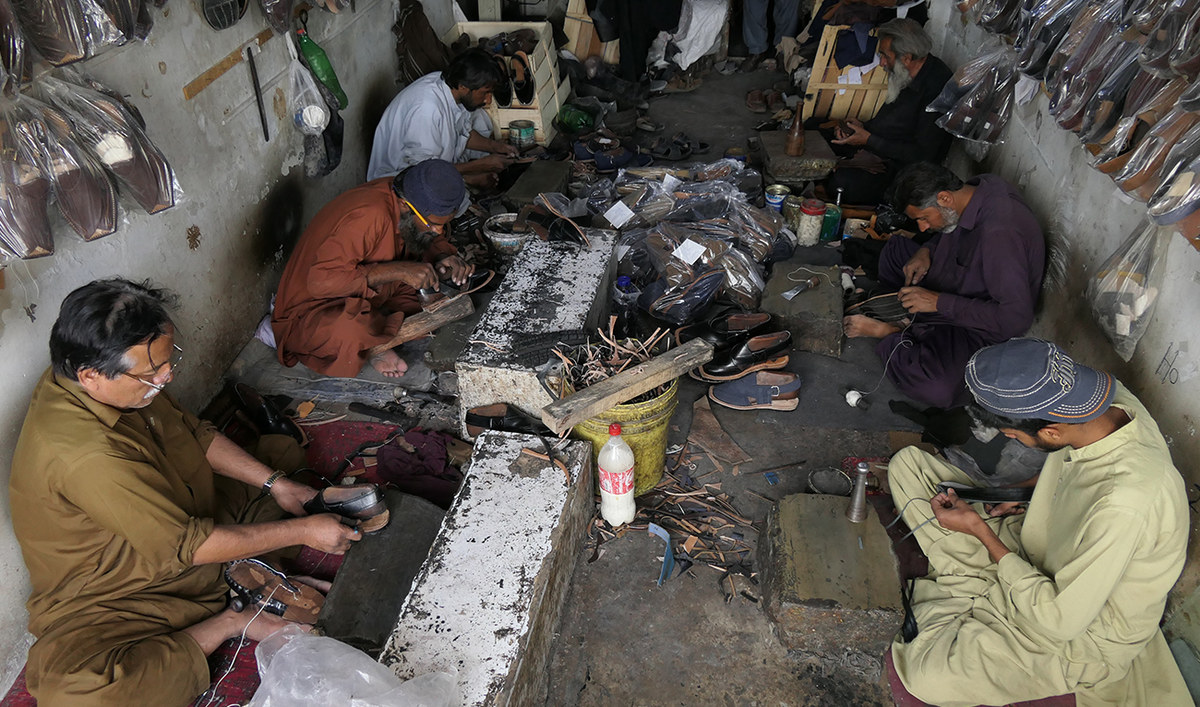
The Baloch sandal makers are busy working inside a shop to prepare the traditional footwear ahead of the Muslim festival of Eid in Quetta on April 16, 2023. (AN Photo)
Mir Ahmed, 22, said he now bought one sandal every two years as he could no longer afford to get a new pair annually.
“These days, inflation has increased and these sandals are not accessible for the poor,” he said as he tried on a pair of grey sandals. “But wearing these sandals is our fashion and we can’t leave it.”

This picture, taken on April 16, 2023, shows the variety of traditional Baloch sandals displayed ahead of the Muslim festival of Eid at the Prince Road market in Quetta. (AN Photo)
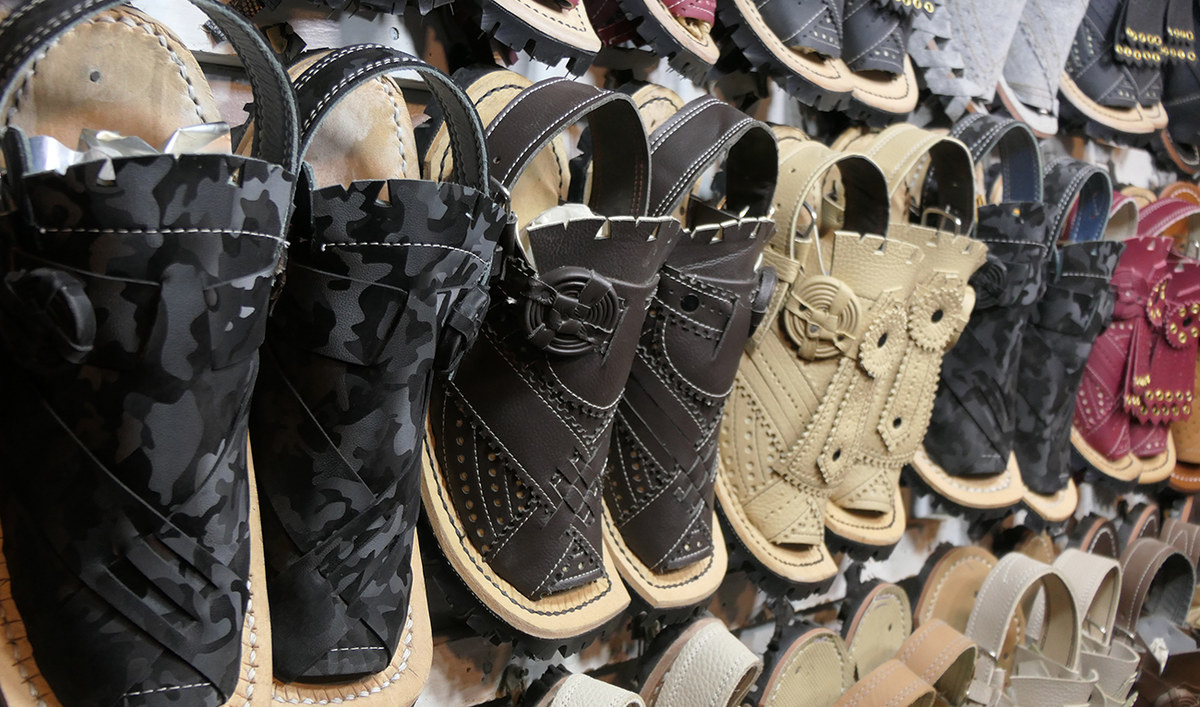
This picture, taken on April 16, 2023, shows the variety of traditional Baloch sandals displayed ahead of the Muslim festival of Eid at the Prince Road market in Quetta. (AN Photo)
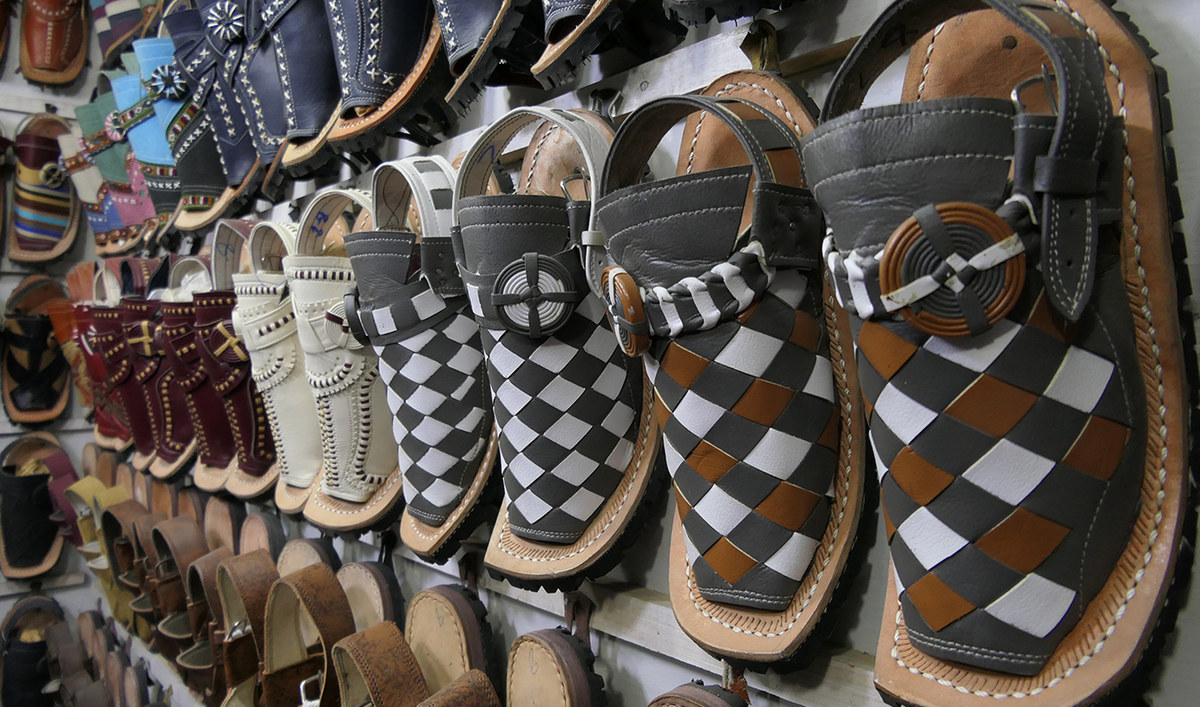
This picture, taken on April 16, 2023, shows the variety of traditional Baloch sandals displayed ahead of the Muslim festival of Eid at the Prince Road market in Quetta. (AN Photo)
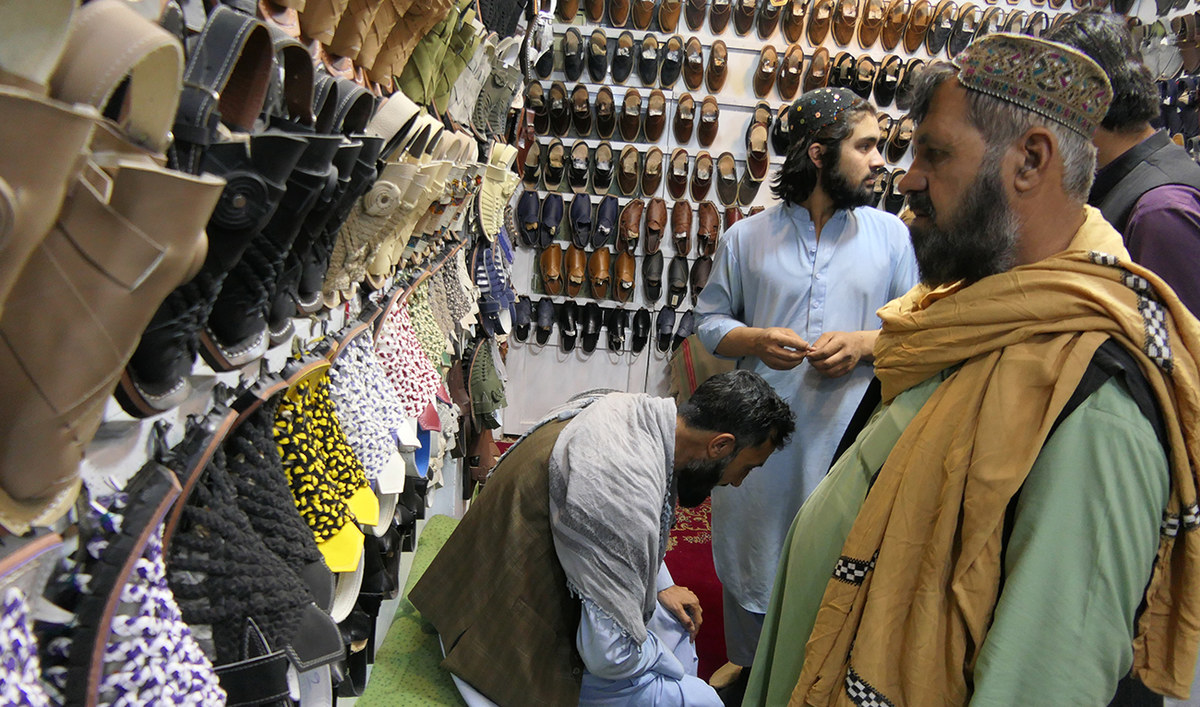
Customers gather inside a shop to buy traditional Baloch sandals ahead of the Muslim festival of Eid in Quetta on April 16, 2023. (AN Photo)
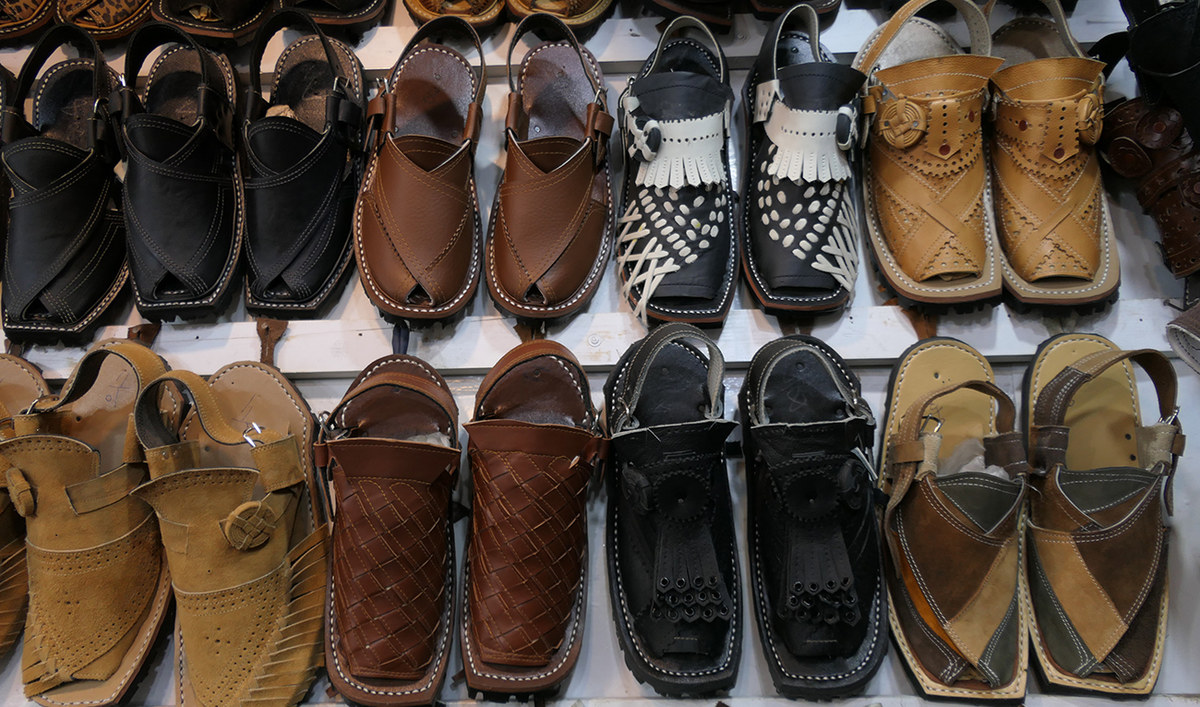
This picture, taken on April 16, 2023, shows the variety of traditional Baloch sandals displayed ahead of the Muslim festival of Eid at the Prince Road market in Quetta. (AN Photo)






